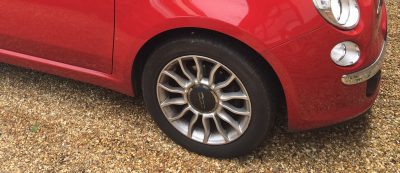
Learning The Aspects Of Car Grip
One of the first things you’ll be taught when you learn how to drive is proper steering control. It’s really quite an amazing thing our brain does when we are trying to get around a corner. We are judging how fast we’re going, how tight the corner is, how far away we are from it and then finally making small adjustments to the steering wheel. If you are going to have what is called ‘first-time pass’ success, then you have to be sharp with your steering inputs. Everything else in terms of throttle, brake, clutch, gear stick and more can be fiddled around with and eventually become second nature. However steering is something that is the key that unlocks all those other doors. But even if you’re amazing at steering, what if the car doesn’t go the direction you tell it? This is when you discover how important grip is to understand before you can really get a grasp of driving properly.
A moving weight
Cars are very often described as weapons because in all measured approaches, they are. A 1-2 ton piece of metal is hurtling down the road at a lot speed, so of course it could injure or very seriously hurt someone. It’s a moving weight in that instance. This is exactly what you need to understand when it comes to learning about grip. You’re shifting weight and that involves inertia. Weight balance is something that not many new drivers know about. Think about how the top racing cars are designed. They have the engine in the middle, making the center of balance in the center of the car. This then affords an inherent neutral weight where the car is neither front or rear heavy. When you drive your car, this is something you should be aware of because it can act like a pendulum. Don’t put too much weight over the front tires but don’t keep the back of the car too light either. It’s actually better to load your suitcases on top of the car than putting them in the boot for when you’re going on holiday if you want better braking ability.
The only things that touch
Despite the size of a car, the only things that touch the road of the car are the four wheels or rather tires. You should consider what kinds of tyres you have for your car and buy tyres that are going to give you the best grip in all weather. Look out for a softer rubber with a tread that will be durable. Softer tyres give you much better grip as they are more adhesive to the road. Harder rubber is great for endurance but won’t give you amazing feel through the steering wheel. Take a look at the Falken 205/50R15 86V ZIEX ZE914 tyres which provides a great balance for both wet and dry conditions. The treads are not so deep and aggressive that they take away your ability to feel the road when it’s dry but long enough so that the rainwater on the road is pushed out of the way. Getting better at feeling where the grip is to get the best handling and turning for your car begins with knowing what kinds of tyres you require for your car.
Choose your drive layout
For the most part, the majority of the cars on the road are front-wheel drive. What does this mean? The transmission provides the front wheels with the power from the engine. The rear of the car is thus very numb. The brakes are also biased towards the front because they provide better handling when trying to rapidly slow down. If the brakes were biased toward the rear this would mean your car snaps and spins around. However the rear wheels don’t do much and the front wheels are overloaded. This can also make the car seem very good at handling during low speeds but not so good during high speed. Front engined cars and front-wheel drive cars are thus going to understeer more. A front engined rear-wheel drive car balances out the roles so the rear wheels do the acceleration while the fronts only do the steering. The braking can be shared here but again it will be towards the front. The rear-wheel drive car will give more grip since the wheels are not delivering the power and turning at the same time.
Grip is not some mysterious jedi mind trick that only racing drivers know about. It’s partly to do with feel throughout body and mind but most of it is to do with physics.
More from Blue School Of Motoring: